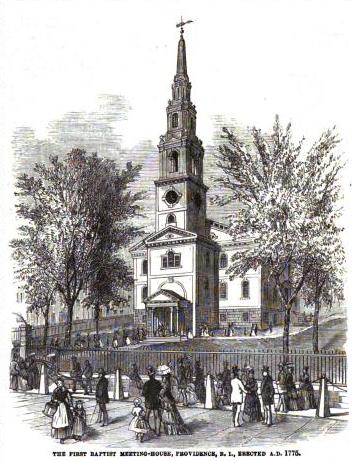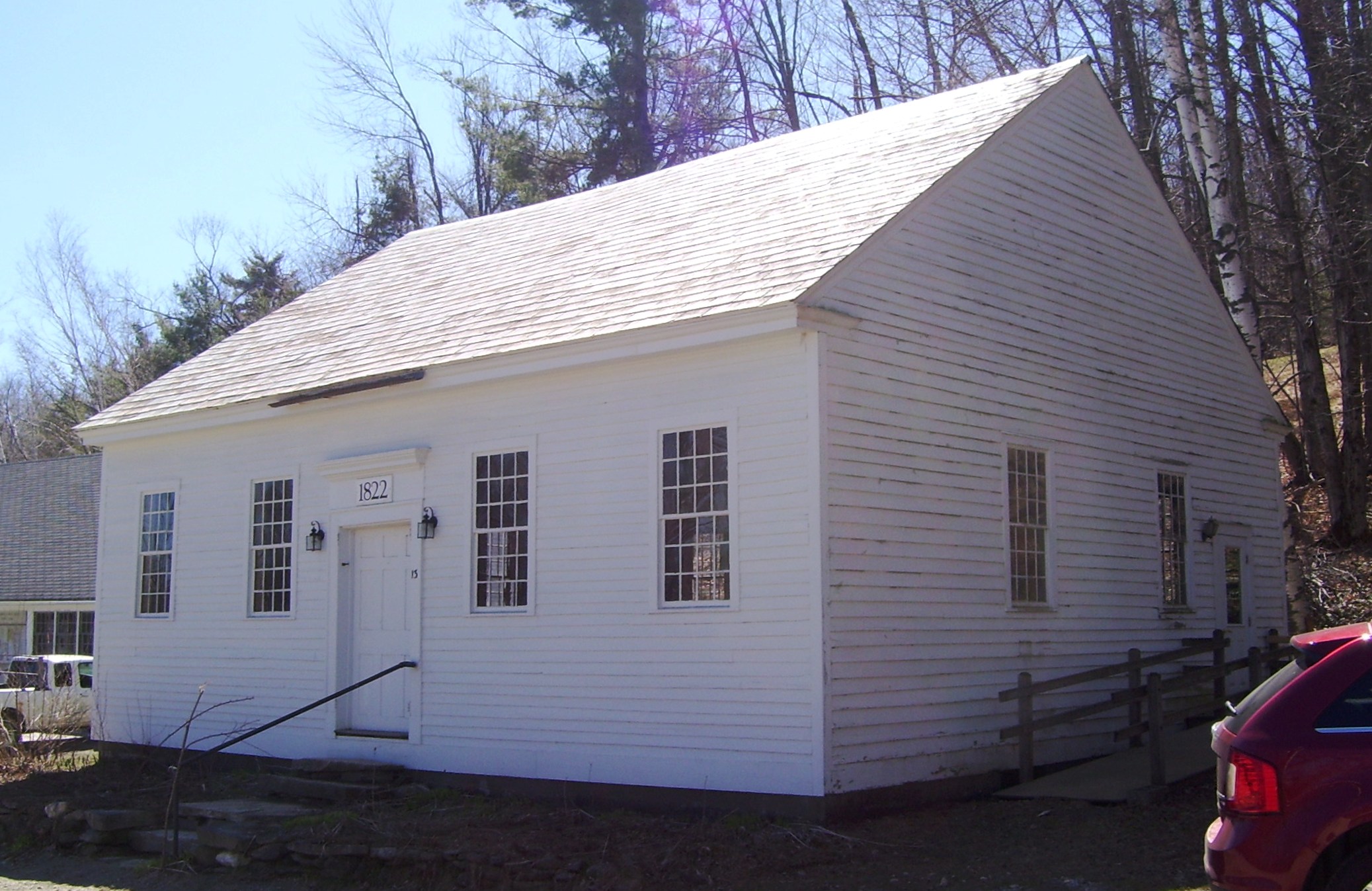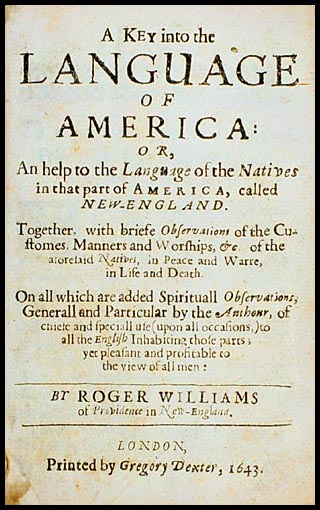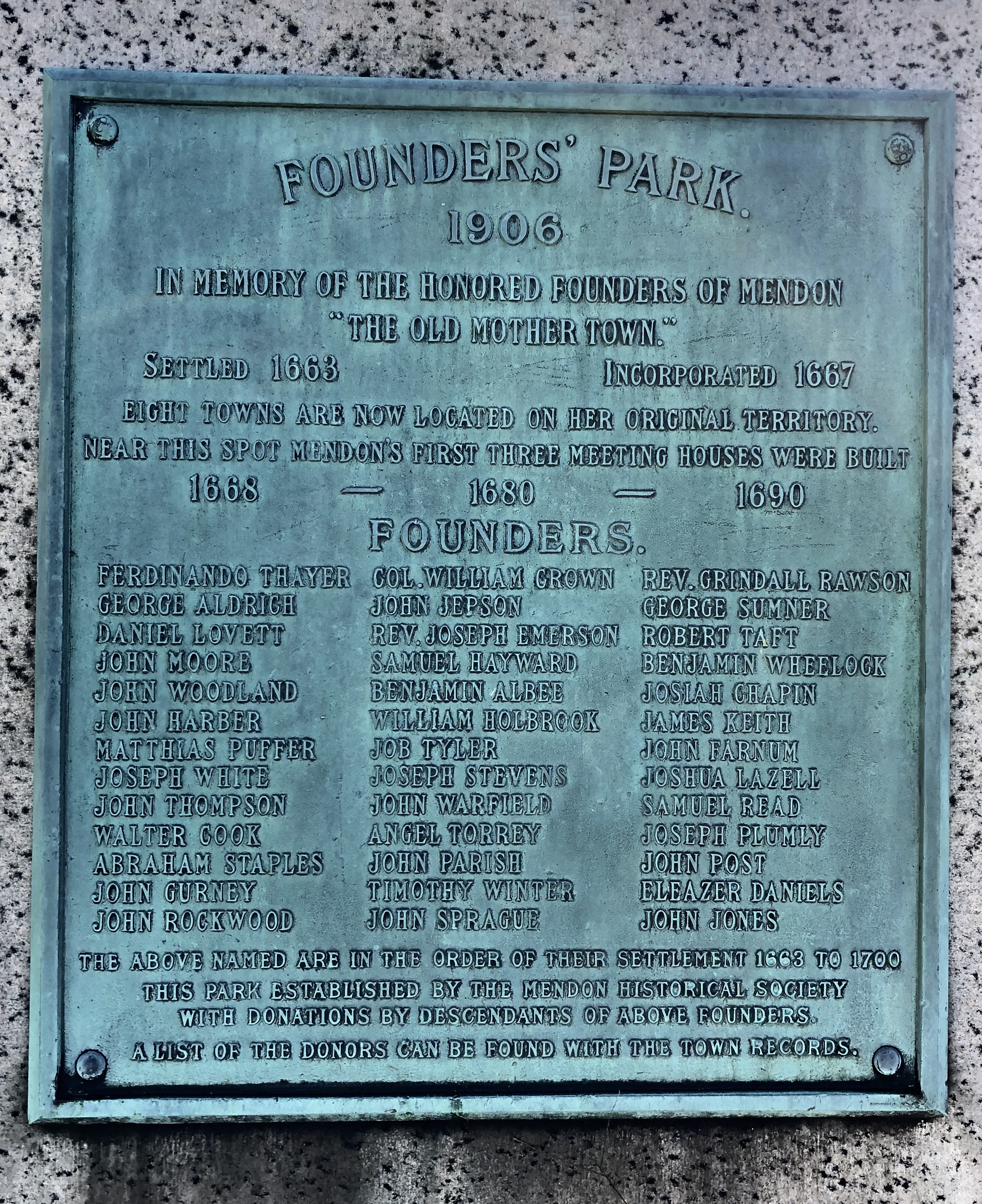|
Pardon Tillinghast
Pardon Tillinghast (1625–1718) was an early settler of Providence, Rhode Island, a public official there, and a pastor of the Baptist Church of Providence. A cooper by profession, he immigrated to New England about 1645, and became a successful merchant. Later in life he became a clergyman, serving without compensation for nearly four decades before his death in 1718, aged about 96. Life Baptized in 1625 in Streat, Sussex, Pardon Tillinghast was the son of Pardon Tillinghast and Sarah Browne of Ifield, Sussex, England. His paternal grandparents were John Tillinghast and Alice Pardon of Streat in Sussex, and his maternal grandparents were Reverend Benjamin Browne and Sarah Leachford of Ifield. His grandfather, John Tillinghast, attended Cambridge University, earning a Bachelor of Arts degree in 1581/2, a Master of Arts degree in 1585, and then served as the rector at Streat from 1593 to 1624. An uncle was John Tillinghast, a Fifth Monarchist. While still in England, P ... [...More Info...] [...Related Items...] OR: [Wikipedia] [Google] [Baidu] |
Providence, Rhode Island
Providence is the capital and most populous city of the U.S. state of Rhode Island. One of the oldest cities in New England, it was founded in 1636 by Roger Williams, a Reformed Baptist theologian and religious exile from the Massachusetts Bay Colony. He named the area in honor of "God's merciful Providence" which he believed was responsible for revealing such a haven for him and his followers. The city developed as a busy port as it is situated at the mouth of the Providence River in Providence County, at the head of Narragansett Bay. Providence was one of the first cities in the country to industrialize and became noted for its textile manufacturing and subsequent machine tool, jewelry, and silverware industries. Today, the city of Providence is home to eight hospitals and List of colleges and universities in Rhode Island#Institutions, eight institutions of higher learning which have shifted the city's economy into service industries, though it still retains some manufacturin ... [...More Info...] [...Related Items...] OR: [Wikipedia] [Google] [Baidu] |
West Indies
The West Indies is a subregion of North America, surrounded by the North Atlantic Ocean and the Caribbean Sea that includes 13 independent island countries and 18 dependencies and other territories in three major archipelagos: the Greater Antilles, the Lesser Antilles, and the Lucayan Archipelago. The subregion includes all the islands in the Antilles, plus The Bahamas and the Turks and Caicos Islands, which are in the North Atlantic Ocean. Nowadays, the term West Indies is often interchangeable with the term Caribbean, although the latter may also include some Central and South American mainland nations which have Caribbean coastlines, such as Belize, French Guiana, Guyana, and Suriname, as well as the Atlantic island nations of Barbados, Bermuda, and Trinidad and Tobago, all of which are geographically distinct from the three main island groups, but culturally related. Origin and use of the term In 1492, Christopher Columbus became the first European to record his arri ... [...More Info...] [...Related Items...] OR: [Wikipedia] [Google] [Baidu] |
Six Principle Baptist
The Six-Principle Baptists is a Baptist Christian denomination in United States. History The history of General Six-Principle Baptists in America began in Rhode Island in 1652 when the historic First Baptist Church, once associated with Roger Williams, split. The occasion was the development within the congregation of an Arminian majority who held to the six principles of Hebrew 6:1–2: repentance from dead works, faith toward God, the doctrine of baptisms, the laying-on of hands, resurrection of the dead, and eternal judgment. Of these, the laying-on of hands was the only doctrine really distinctive to this body, and that only because it was advocated as mandatory. This rite was used at the baptism and reception of new members symbolizing the reception of the gifts of the Holy Spirit. Some Calvinistic Baptist churches were also "Six-Principle," but they did not survive as a separate body. Even the influential Philadelphia Baptist Association (org. 1707) added an article conce ... [...More Info...] [...Related Items...] OR: [Wikipedia] [Google] [Baidu] |
Meeting House
A meeting house (meetinghouse, meeting-house) is a building where religious and sometimes public meetings take place. Terminology Nonconformist Protestant denominations distinguish between a * church, which is a body of people who believe in Christ, and; * meeting house or chapel, which is a building where the church meets. In early Methodism, meeting houses were typically called preaching houses (to distinguish it from a church house), which hosted itinerant preachers. Meeting houses in America The colonial meeting house in America was typically the first public building built as new villages sprang up. A meeting-house had a dual purpose as a place of worship and for public discourse, but sometimes only for "...the service of God." As the towns grew and the separation of church and state in the United States matured the buildings which were used as the seat of local government were called a town-house or town-hall. The nonconformist meeting houses generally do not have s ... [...More Info...] [...Related Items...] OR: [Wikipedia] [Google] [Baidu] |
Morgan Edwards
Morgan Edwards (May 9, 1722 – January 25, 1792) was an American historian of religion, Baptist pastor, notable for his teaching on the 'rapture' before its popularization by John Nelson Darby (1800–1882). Biography Edwards was born in Trevethin parish, Pontypool, Wales, and attended Bristol College, after which he began preaching in 1738. He pastored several small Baptist churches in England for seven years, then moved to Ireland, where he pastored for nine years. In May 1761 he emigrated to the American colonies, and became pastor of the First Baptist Church in Philadelphia, Pennsylvania. He was one of the few Baptist clergyman to side with the Tories in the American Revolution. Edwards was a friend to the Academy of Philadelphia, afterwards the University of Pennsylvania, which in 1769 honored him with an honorary Master of Arts. Edwards resigned as pastor of the First Baptist Church in Philadelphia in 1771 and retired to Pencader Hundred, near Newark, Delaware where he l ... [...More Info...] [...Related Items...] OR: [Wikipedia] [Google] [Baidu] |
Gregory Dexter
Gregory Dexter (1610–1700) was an early American printer, Baptist minister, and early President of the combined towns of Providence and Warwick in the Colony of Rhode Island and Providence Plantations. He was in New England as early as 1644 when he had a five-acre lot assigned to him in Providence. He had been in the printing business in London, and still operated that business in 1643 when his establishment printed Roger Williams's translation of the Narragansett language. As an experienced stationer, he offered his expertise to the printing operation in Boston in 1646, asking for no compensation other than an annual almanac. Dexter became active in colonial affairs in 1647, as the four towns of Rhode Island Colony were consolidating into a unified government. He became a commissioner from Providence during the early 1650s, after William Coddington had received a commission to remove the two island towns of Portsmouth and Newport from the unified government. Dexter b ... [...More Info...] [...Related Items...] OR: [Wikipedia] [Google] [Baidu] |
William Wickenden
William Wickenden (c. 1614–1671) was an early Anglo-American Baptist minister, co-founder of Providence Plantations, and signer of the Providence Compact. Wickenden Street in Providence marks where he originally settled in the seventeenth century and is named in his honor.James Pierce Root, ''Steere Genealogy: A Record of the Descendants of John Steere, who Settled in Providence, Rhode Island, about the year 1660,'' (Providence: Riverside Press, 1890). (Wickenden's daughter married John Steere, progenitor of that family.) Emigration to New England Wickenden was possibly born in Oxfordshire, England in about 1614, although there has been no definitive evidence provided to prove this. Some claim that he was born in Oxford, which has not been proven, either. The Wickenden name originates in Cowden, Kent, and there is an Otford in that county, so some speculate that this is a more logical place to search for his birth. Ministry Wickenden emigrated to America prior to 1634 and liv ... [...More Info...] [...Related Items...] OR: [Wikipedia] [Google] [Baidu] |
Thomas Olney
Thomas Olney (ca. 1600–1682) was an early minister at the First Baptist Church in America and one of the first proprietors in Providence Plantations. Immigration to New England Olney was born in England in 1600 and was trained as a shoemaker. He married Marie Ashton at St. Albans Abbey in Hertfordshire, England on September 16, 1629, and they begot sons Thomas and Epenetus. Olney and his family immigrated to Salem, Massachusetts on the ship ''Planter'' in April 1635. They were asked to leave Massachusetts Bay Colony due to religious differences, and they moved to Providence in 1638 following Roger Williams. He signed the Providence agreement to form a government in 1640, and he was one of the original 12 persons to whom Roger Williams deeded land that he had purchased from Canonicus and Miantonomi on October 8, 1638. Olney served the town in various capacities including the first Treasurer, Court Assistant, Town Councilman, Clerk, Assistant to the General Court of Trials, ... [...More Info...] [...Related Items...] OR: [Wikipedia] [Google] [Baidu] |
Chad Browne
Reverend Chad Brown I (also known as Chaddus Browne) (c. 1600–1650) was one of the first ministers of the First Baptist Church in America and one of the earliest proprietors of Providence Plantations. He was also the progenitor of the Brown family of Rhode Island, known for its association with Brown University. Settlement in Providence Chad Brown was born in High Wycombe, Wycombe, Buckinghamshire, England and married Elizabeth Sharparowe on September 11, 1626 in High Wycombe, Buckinghamshire, England. He emigrated to New England on the ship ''Martin'' with Elizabeth and their son John. The family arrived in Boston in the Massachusetts Bay Colony in July 1638. He soon moved to Providence Plantations which was recently purchased by Roger Williams from the Narragansett people, Narragansetts. Sometime between 1639 and 1644, Brown and List of early settlers of Rhode Island#Providence civil compact, 1637, 12 others signed an agreement sometimes called the Providence Compact, an ag ... [...More Info...] [...Related Items...] OR: [Wikipedia] [Google] [Baidu] |
Roger Williams (theologian)
Roger Williams (21 September 1603between 27 January and 15 March 1683) was an English-born New England Puritan minister, theologian, and author who founded Providence Plantations, which became the Colony of Rhode Island and Providence Plantations and later the U.S. State of Rhode Island and Providence Plantations, now the State of Rhode Island. He was a staunch advocate for religious freedom, separation of church and state, and fair dealings with Native Americans. Williams was expelled by the Puritan leaders from the Massachusetts Bay Colony and established Providence Plantations in 1636 as a refuge offering what he termed "liberty of conscience". In 1638, he founded the First Baptist Church in America, in Providence. Williams studied the indigenous languages of New England and published the first book-length study of a native North American language in English. Early life Roger Williams was born in or near London between 1602 and 1606, with many historians citing 1603 as the pr ... [...More Info...] [...Related Items...] OR: [Wikipedia] [Google] [Baidu] |
Mendon, Massachusetts
Mendon is a town in Worcester County, Massachusetts, United States. The population was 6,228 at the 2020 census. Mendon is part of the Blackstone River Valley National Heritage Corridor, an early center of the industrial revolution in the United States. Mendon celebrated its 350th Anniversary on May 15, 2017. History Early history Native Americans inhabited the Mendon area for thousands of years prior to European colonization of the Americas. At the time of contact, Nipmuc people inhabited the area that would become Mendon, and Nipmuc Pond is named for them. Nipmuc Regional High School was named after this lake. ''Nipmuc'' means "small pond place" or "people of the fresh waters". The Nipmuc name does not refer to a specific village or tribe, but to natives that inhabited almost all of central Massachusetts. Over 500 Nipmuc live today in Massachusetts, and there are two nearby reservations at Grafton and Webster. The Nipmuc had a written language, tools, a graphite mine at ... [...More Info...] [...Related Items...] OR: [Wikipedia] [Google] [Baidu] |
Puritan
The Puritans were English Protestants in the 16th and 17th centuries who sought to purify the Church of England of Catholic Church, Roman Catholic practices, maintaining that the Church of England had not been fully reformed and should become more Protestant. Puritanism played a significant role in English history, especially during the Protectorate. Puritans were dissatisfied with the limited extent of the English Reformation and with the Church of England's toleration of certain practices associated with the Roman Catholic Church. They formed and identified with various religious groups advocating greater purity of worship and doctrine, as well as personal and corporate piety. Puritans adopted a Reformed theology, and in that sense they were Calvinists (as were many of their earlier opponents). In church polity, some advocated separation from all other established Christian denominations in favour of autonomous gathered churches. These English Dissenters, Separatist and Indepe ... [...More Info...] [...Related Items...] OR: [Wikipedia] [Google] [Baidu] |








